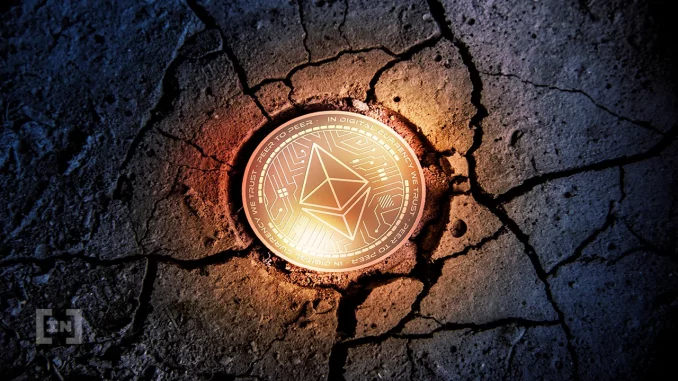
Ethereum’s developers announce another delay of the “difficulty bomb,” a section of the consensus algorithm that eventually makes it impossible to mine Ethereum.
This announcement comes as more bad news for Ethereum enthusiasts hoping for the completion of the Ethereum 2.0 merge in August. While ConsenSys researcher Mikhail Kalinin officially initiated work on the Ethereum upgrade in July last year, different developers have since updated the broader community on the migration of Ethereum’s energy-intensive proof-of-work progress algorithm to a PoS algorithm.
While no official launch date has been announced, Ethereum co-founder Vitalik Buterin previously said that the upgrade could be available by August, barring any significant issues.
Delays to difficulty bomb
The most recent developer update came on Friday, describing potential delays to the deployment of the “difficulty bomb,” a piece of code that, when activated, gradually boots miners off the blockchain through increasing mining difficulty, until it becomes impossible to mine Ethereum.
Developers have already deployed the difficulty bomb and have delayed it previously.
On Friday, issues prompted developers to push Ethereum 2.0’s release date back after testing the merge for bugs on the Ropsten testnet, one of the oldest testnets for Ethereum. Fourteen percent of network validators, including those responsible for securing the network, were taken offline when the new code was deployed, according to one developer, Danny Ryan.
Regardless, Ryan said that he’d be “jumping for joy” if the code was deployed on the main Ethereum blockchain in its current state. He summarized the Ropsten test as a situation where 9% of validators have a configuration problem, and two minor bugs affect some stakers (those who lock up coins for a chance to validate transactions and secure a proof-of-stake network).
However, other developers are more cautious, advocating a delay until all the issues are ironed out.
“Delaying it gives you time,” said Thomas Jay Rush on the call, facilitated by the lead developer, Tim Beiko.
“It looks bad to the community, but there’s nothing you can do about that.”
Beiko feels restarting the difficulty bomb could give the developers some breathing room and prevent burnout.
“If we do delay this, I think it should be a realistic delay to still maintain a sense of urgency. But too much pressure pushes teams to burnout; that’s also a situation we don’t want to be in.”
Another developer Alexey Sharp said they are already working flat out and don’t need the” sense of urgency.”
Beiko confident release will happen this year
Beiko admitted that they are not yet at mainnet code, i.e., the code is not ready to merge with the current Ethereum blockchain.
Buterin did say that the merge could be delayed should developers require additional time, estimating a September or October release. Beiko told Bloomberg it is unlikely that the merge should not happen sometime this year, citing a 90-99% chance.
The delay of the difficulty bomb is a double-edged sword. On the one hand, a failure after deployment would be catastrophic for the network.
On the other hand, the longer developers take, the more time for other proof-of-stake blockchains to encroach on Ethereum’s market share.
The world’s second-largest cryptocurrency by market share fell 6.4% yesterday, down 66% from its all-time high in November last year.
What do you think about this subject? Write to us and tell us!
Disclaimer
All the information contained on our website is published in good faith and for general information purposes only. Any action the reader takes upon the information found on our website is strictly at their own risk.






Be the first to comment